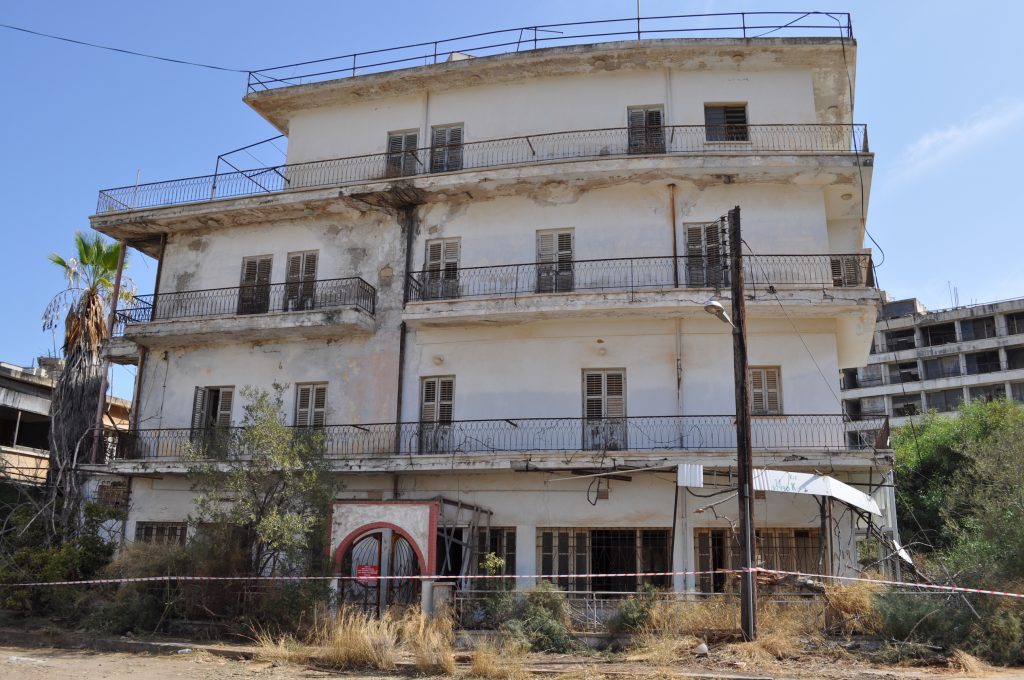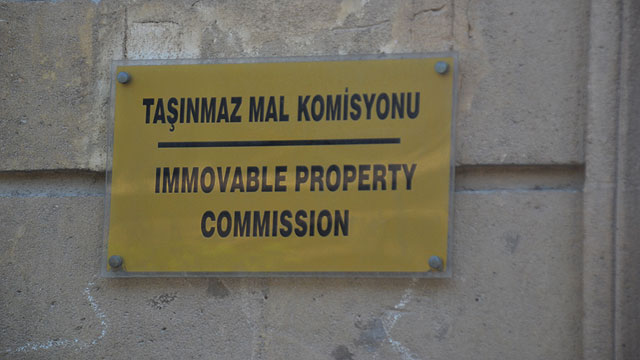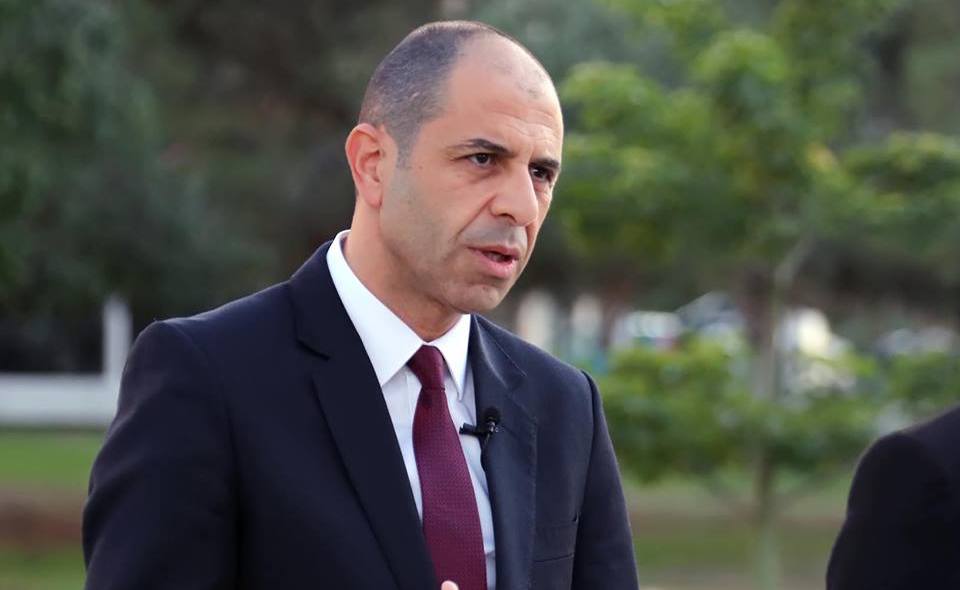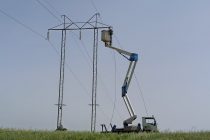Kudret Özersay has reprimanded the Turkish Cypriot government for paralysing the vital work of the Immovable Property Commission (IPC) by failing to appoint key personnel.
The former foreign minister of the Turkish Republic of North Cyprus (TRNC) wrote on his personal Facebook page on Monday, 2 August, that the IPC “can’t even hold a meeting, can’t take a decision, its chairman and one member are missing, not appointed.”
The IPC mediates in land disputes between current residents of property in North Cyprus and Greek Cypriot refugees who formerly owned them. Its decisions are internationally recognised.
According to its own website, to date the IPC has resolved over 1,150 property claims by Greek Cypriot refugees, awarding nearly £320 million in compensation to those deprived of their property following the Cyprus Conflict.
However, the IPC has not been able to function properly for the past four months due to the TRNC Government’s inability to appoint a chairman and a committee member. As a result, the IPC cannot adjudicate in the outstanding cases, believed to be over 5,700 in total.
The problem was first highlighted by Dr Özersay back in June. The leader of the opposition People’s Party (HP) told the TRNC Parliament that, “The Immovable Property Commission has not met for two months, its members are missing.”
The failure of the IPC to operate effectively has become more acute given its strategic importance to the TRNC Government’s plans to open up the ghost town of Maraş / Varosha to its former residents.
Once popular with the rich and famous, the seaside resort in Famagusta has turned to ruins due to years of neglect following the 1974 War in Cyprus, when its mainly Greek Cypriot residents fled. The town was sealed off by the Turkish military to prevent others from occupying it.
Despite an international outcry by politicians concerned at the lack of UN oversight, President Tatar and Ersan Saner, the current TRNC Prime Minister, have both confirmed the town will re-open “in line with international law,” claiming it does not serve anyone for the town to remain closed indefinitely. Many Greek Cypriots have already sought restitution of their property in Varosha through the IPC.

In an interview with Turkish Cypriot state broadcaster BRT last week, President Tatar said that ‘337 Greek Cypriots had already applied to the IPC’ in the capital Lefkoşa to recover their properties in the now dilapidated seaside resort.
Although the TRNC does not enjoy full international political recognition, the European Court of Human Rights does recognise the IPC and its decisions.
The IPC was formed fifteen years ago, after more than 1,500 Greek Cypriots refugees made applications to the ECHR for a resolution to their property disputes. In 2005, the ECHR ruled an alternative had to be found as it was not practical to settle so many cases in Strasbourg.
“Now it’s been 3.5 months in total. IPC can’t even hold a meeting, can’t take a decision, its chairman and one member are missing, not appointed”
Following the creation of the IPC in 2006, the ECHR has regularly stipulated that all Greek Cypriots with property disputes in North Cyprus must first apply to the IPC for a local remedy, while also upholding the IPC’s decisions.
Operating under strict legal criteria laid down by the ECHR, the IPC has presided over hundreds of friendly settlements that reflect the rights of both the current and former owner. The remedies the IPC can order include restitution, exchange and compensation, or any mix of the three.
In recent years, some refugees have complained about the length of time the IPC takes to make its decisions. Those defending the body point to the commission’s need to research each case thoroughly, so it can identify and liaise with all parties that have a potential stake in a particular property, often without any co-operation from the South Cyprus authorities, before reaching its verdict.

Other Greek Cypriots who have received a ruling from the IPC are upset that they have not received the compensation awarded to them. Several have initiated court proceedings against Turkey – who they hold responsible for North Cyprus – for failing to enforce decisions made by the IPC.
In one such case, Ioannis Kyriakides first applied to the IPC in 2011 and accepted a friendly settlement offer in 2017. As part of the settlement, Mr Kyriakides would also renounce his claim to the property, effectively turning the land into a Turkish title deed. However, the Greek Cypriot refugee has yet to receive his £428,360 compensation. In 2019, his lawyers applied to the ECHR over the non-enforcement of the award, claiming Mr Kyriakides’ rights have been breached.
Kudret Özersay berates TRNC government on Facebook
Kudret Özersay, who played a major role as foreign minister between 2018 and 2020 in preparing Varosha to be re-opened, gave a stark warning to the Saner government and President Tatar over the mismanagement of the IPC in a statement on his personal Facebook page. The former minister warned the government not to damage “correct policy” with “poor practices”.
“The President and the Prime Minister discussed what they can do to STRENGTHEN the Immovable Property Commission (IPC) in the Council of Ministers today!!!
“Exactly a month and a half ago, in my speech to the Assembly, we said and warned that “You say you will open Maraş through the IPC channel, but you could not even appoint the President and MEMBER of the IPC, EVEN MEETINGS have not been held for the last TWO MONTHS, and so not even a decision can be taken”.
“Now it’s been 3.5 months in total. IPC can’t even hold a meeting, can’t take a decision, its chairman and one member are missing, not appointed.
“When we said, “Closed Varosha should be opened by making the necessary preparations,” this and similar problems were what we were trying to avoid.
“We make suggestions and warn you as CONSTRUCTIVE OPPOSITION, but unfortunately there is no government to hear, listen and take this into account.
“I hope you will not turn a correct policy supported by Turkey, such as the opening of closed Maraş under the Turkish Cypriot Administration, into a sack of figs with your poor practices…
“We will continue to issue our warnings.”
About the Immovable Property Commission
The Immovable Property Commission was set up under the TRNC’s Immovable Property Law (No. 67/2005), which was made in accordance with the ruling of the ECHR in the case of Xenides-Arestis v. Turkey, both in 2005.

Two of the main architects of the IPC were human rights lawyer Emine Çolak and Mehmet Ali Talat, who was TRNC President at the time. Both understood the need and the opportunity to demonstrate to the world that the Turkish Cypriot state not only existed, but that it also adhered to international law.
The formation of the IPC on 17 March 2006 fulfilled the need to establish an effective domestic remedy for claims relating to abandoned properties in Northern Cyprus. Its decisions are determined by a President, Vice-President and members by the Supreme Council of Judicature, who are nominated by the President of the TRNC.
Current members of the Commission include Mr. Ayfer Erkmen, President, Mr. Güngör Günkan, Vice-President, Mrs. Sümer Erkmen, Mr. Erhan Berksel, Mr. Hans C. Kruger, Mr. Daniel Tarschys and Mrs. Saskia Yorucu members.
Due to it being based in the TRNC, deemed “illegally occupied” by most Greek Cypriots, the IPC faced an international legal challenge soon after it was formed on whether it was appropriate body for refugees to seek a remedy from.
On 1 March 2010, as part of its judgment in the case of Demopoulos and Others v. Turkey, the EHCR ruled that the IPC does provide an effective remedy and rejected the complaints of applicants for non-exhaustion of domestic remedies.





